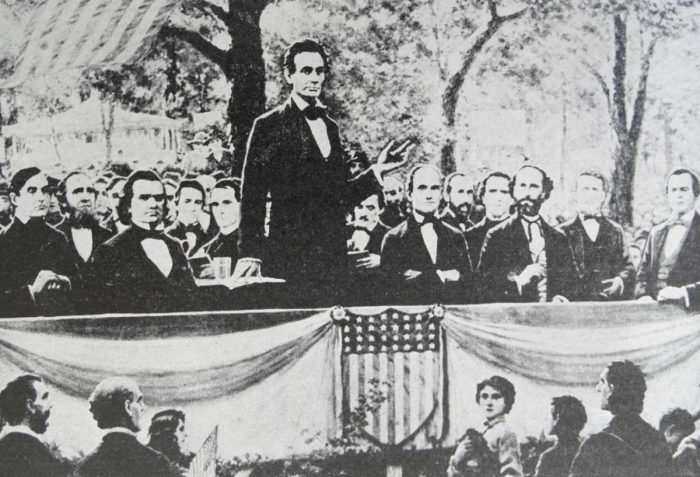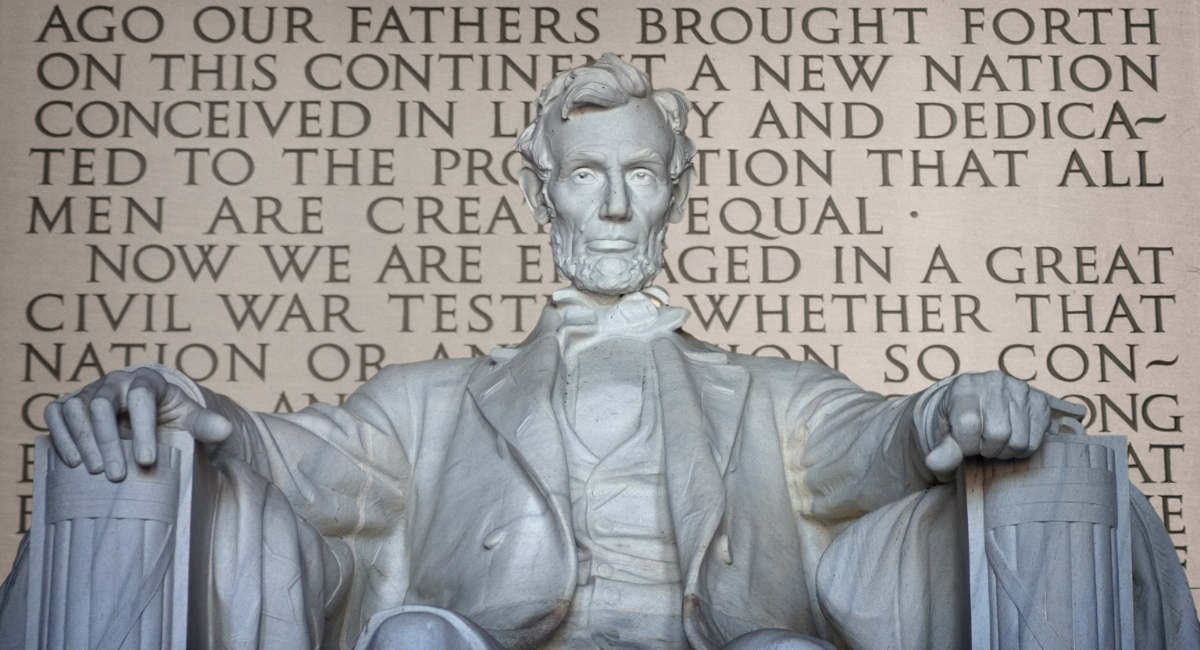Disclaimer: The opinions expressed in this guest post are solely those of the guest author.
In the post-Dobbs abortion debate, a rift has opened among those who favored the overturn of the previous controlling precedents of Roe and Casey. On one side are those who see the killing of the unborn as today’s greatest injustice, whether their preferred short-run strategy is a national limit on abortion after a certain gestational stage or to enact additional state-level restrictions. Notably, Senator Lindsey Graham (R-S.C.) has endorsed a 15-week nationwide limit with exceptions for the usual caveats.
On the other side, some conservatives now demur any substantive engagement with abortion, preferring to express moral ambivalence toward abortion and vague satisfaction that the issue is back in the hands of voters and legislators rather than courts. This camp is embodied by Donald Trump’s recent pronouncement that he doesn’t favor any national restrictions on abortion, and his failure to say whether he will support the Florida ballot initiative that would enshrine a right to abortion through the first two trimesters of pregnancy (24 weeks). America must eschew the amoral illogic of the latter position and embrace the former.
When moral ambiguity allows injustice
If one’s position on abortion is states’ rights, that begs the question: how should the states solve it? America has been here before, in the slavery debates of the 1850s. Then, the empty doctrine of “popular sovereignty” that Stephen Douglas championed played the role that today’s “now that it’s back to the states we can forget about it” crowd does today.
In Stephen Douglas, the diminutive Illinois Democrat preaching “popular sovereignty,” on slavery, Abraham Lincoln saw a greater threat to liberty and the Spirit of 1776 than the southern fire-eaters like John Henry Hammond, John Calhoun, and Edmund Ruffin, whose broadsides against the American Founding the non-slaveholding majority (North and South) could never swallow.

Abraham Lincoln (standing) in one of a series of seven debates regarding slavery with Stephen Douglas (at Lincoln’s right), his rival for a seat in the Senate. These debates permitted both candidates to discuss their views on slavery. (Photo by: Universal History Archive/UIG via Getty images)
Douglas said he didn’t care whether slavery won or lost in a particular territorial or state referendum if the people of that state or territory held a fair election. For fear of angering voters on either side of the issue, he kept his moral opinion private, and thus obscured the fact that the struggle involved justice for slaves, not procedural niceties.
Lincoln rightly perceived that this professed moral ambivalence amounted to tacit approval of evil, and called it out in his “House Divided” speech, where Lincoln said that if Douglas’s attitude of “care not” won, then there would be no moral force to stop slavery’s expansion. The argument against slavery would become cold and procedural, not fundamental.
The minute Americans stopped believing that the Founding promise of liberty for every American had intrinsic value beyond the procedural trappings of the republic, stopped believing that we formed the republic to safeguard that liberty, not to let the procedure supplant the principle, then all hope for slaves’ liberty and a just nation might perish. Lincoln disfavored immediate abolition in the southern states, preferring to limit slavery’s reach in the territories. But his long-term strategy rested on the belief that if Americans’ consciences were aroused to the evils of slavery and ideals of the Founding, bondage would eventually disappear.
That some conservatives are now uncomfortable saying, “I don’t think this is a federal issue, but as a citizen of [insert state], I support my state’s heartbeat bill,” is indicative of establishment wariness of pro-life positions in the wake of Dobbs. But such needless moral ambiguity is both politically and morally illiterate.
The question underpinning abortion also underpinned slavery
The overwhelming majority of Americans favor total restriction on third-trimester abortions barring exceedingly rare exceptions. The majority opinion in Dobbs explicitly allows a nationwide ban on abortion that can pass Congress. Perhaps that’s 24 weeks, perhaps 15, or perhaps no congressional consensus exists for any ban. But the pro-life movement must demand that any candidate desiring its support at least try to find a minimum bar for national protection of the unborn, and that they have a personal and unambiguous moral position on abortion.
To forget that the abortion debate concerns human life rather than a mere constitutional question of which level of government should act is to lose the debate entirely. Of necessity, the amoral side will win an argument dominated by competing theories of moral neutrality.
At bare minimum, any candidate desiring the pro-life movement’s support must say: “I am for this being a state decision, but I will do everything I can to protect unborn life in my own state. I will never abandon the basic conviction that abortion is barbaric and wrong. Its eventual course in America is the course of ultimate extinction, whether that takes two years or two hundred. I will never pretend that this issue can be fully settled while injustice is still done to my fellow citizens, although practical considerations may slow our path or make compromise on that road necessary.”
At root, the question underpinning abortion is the same as that which underpinned slavery: are the innocent beings whose rights are trampled American citizens, members of the community with rights, or not? If we answer “yes,” then a patchwork of different state regimes is incoherent in the long-run, while moral dodging on state-level rules is downright inexplicable in the short-run. If we answer “no,” then God have mercy on us.
The pro-life movement would do well to imitate Lincoln’s prudent but moral statesmanship. We should realize that our goals may not be achievable immediately, but always seek maximum feasible protection for the unborn.
We should never retreat from the fundamental truth that abortion is a violent injustice that violates the spirit and letter of America’s Founding documents. And we should expect that our standard-bearers sound more like Lincoln than Stephen Douglas.







